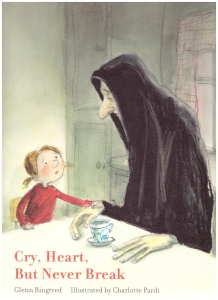Dear Uncle Scrivener:
I want to write, but I can’t seem to get started. Besides, I don’t think I have anything to say. Do you have any advice for me? -- Lonely Pen in Nebraska
Dear Lonely Pen:
I sympathize with your plight. Sounds like me as I was beginning. Here’s some scrivening that may be helpful:
Never Give Up. Are you writing already? I’d bet that you are. But perhaps you’re not yet tackling that story/memoir/play/project you’d like to be working on. I bet that out there in Nebraska (Willa Cather country, full of story), you are writing something (long e-mail, blog, journal) at least once a week, maybe even once a day. And that, trust me, is a great start. Keep writing. Don’t give up.
I always wanted to write. I was the kid with the qwertyuiop keyboard, pecking away at night, writing to friends or in my journal. But I didn’t think I had anything to say in the way of story. For years. Until: A man whom I knew only slightly showed up wearing a red scarf. I asked him why. “I want to be a playwright,” he said, “and I’m starting from the outside.” Smash that together with some family members, start writing, put them in a kitchen, start them talking, see where it goes, and there’s the first story. But up until the Smash, I just kept writing—writing to friends, sharing bits about my life, writing in my journal, just, you know, writing—so when my time came for a story, I felt comfortable enough with the act of writing to just go ahead, jump off the cliff, and swim with the story.
Writing is writing. Sounds oxymoronic, I know. But the truth is, if you prime the pump by getting words on paper—journal, lengthy letters or e-mails, volunteer articles for the church bulletin, whatever—you will be in a position to leap over the fear-wall and (cliché, but true) just … do … it.
You’ll Know When You’re Ready. The Smash came, and I thought, “I have to try this.” If that first story, “Uncle Louis,” hadn’t worked, then I think the next story would have. The most difficult part was keeping moving, keeping the faith, after the first five pages. And the hardest part after that was letting someone else see this tender green shoot of a first effort. Took me about a year.
Choose your Muse. It takes a lot of back and forth with the world before you get to the place where rejections become “the next step on the way to a Yes.” And that’s just in the sending out. I had one story bounce around for 16 years before—much to my amazement, because I’d changed nothing but the title—it was scooped up within two weeks by a really fine literary magazine.
The first years of writing were really difficult. I was lucky that the first person to read “Uncle Louis” responded very positively (“It’s a real story,” he said. “I like it.”). Later, with another story, a friend’s critique drove me to sever the relationship for over a year and to stop writing for six months. Neither of those reactions was at all useful, I hasten to say. And much of his critique was valid. But those were very tender years.
I left several writing groups because they turned out to be competitive and nasty rather than nurturing and supportive. Life’s too short and the muse is too tricky to waste time bobbing and weaving around “Well, I suppose it’s a nice little story, but I can’t imagine anyone publishing it.” Sigh. I learned my lesson. My first play came into being working in a group where the rule was: Only positive comments (Not blowing smoke, just doing what your grandmother taught you: “If you don’t have something nice to say, don’t say anything.”) Listening for the possibility of change in a positive context made all the difference.
Mind Your P’s & Q’s. Just an old fashioned way of reminding you to check and double check spelling and grammar, punctuation and usage. Nothing irritates a reader more than misspelled words or lazy punctuation. The thinking goes: “If I can’t trust you, the writer, to get the spelling and grammar right, how can I trust anything you’re saying to me?” Harsh, but true. And such an easy fix, even though it means making sure you read your work closely. (Spell Check isn’t going to fix your its-it’s-their-there-they’re problem; you’ll have to fix those yourself.) And find the correct format for presentation: For instance—Contact info and word count at the top; title and byline; story with running head with title, author and page number; and at the end, “THE END”.
Send and Move On. If your story’s ready, then it’s ready. Submit it—probably online, but maybe through the post office. Give yourself a hearty pat on the back and a tasty treat, reward for a job well done. Then sit down and begin the next story/play/memoir/project. And if nothing’s there yet, write in your journal about “the vastness of the empty space of nothingness” (or whatever), until you overhear or see or remember that detail that seems ready for a SMASH.
For A Writer, Everything Counts. I can’t tell you the number of times when, sitting with a dry well, nothing to say, I’ve pieced through an old journal or looked at an abandoned draft and thought: “Hey, not bad. There actually might be something there.” Nine times out of ten, there is. Don’t throw anything away. In the words of the great guru Uncle Scrivener, “Y. N. K.” (Ya’ Never Know.)
Keep Writing…





